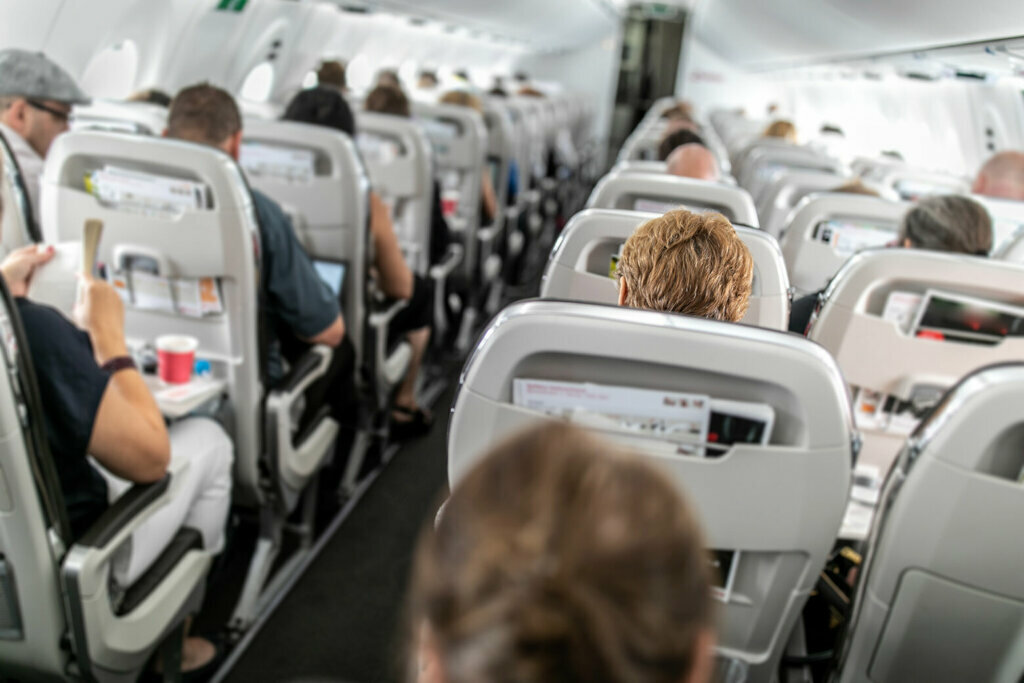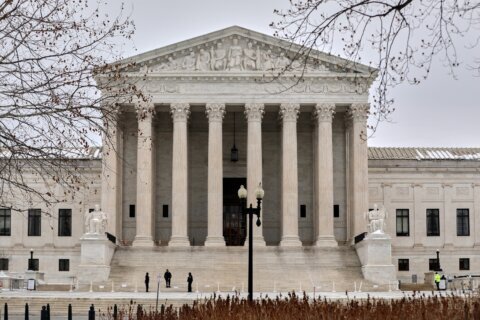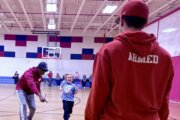
When it comes to the spread of COVID-19, flying is probably safer than most hesitant travelers think.
Airplane cabins are thoroughly cleaned, including overhead bins, window shades, seats, armrests and setback tables, between each flight. Some airlines use ultraviolet light technology as part of their cleaning protocols.
And, contrary to what many people think, an airplane cabin is not just recycling stale air the entire flight.
“The airplanes are constantly sucking in fresh oxygen from the outside of the planes, and in addition, the air that is on board is constantly being filtered through a hospital-grade HEPA filter. It captures about 99.7% of airborne particles, and refreshes the air in the cabin every two to three minutes,” Scott Keyes, at airfare alert site Scott’s Cheap Flights, told WTOP.
Until the pandemic, airlines did not typically run those systems while at the gate, though now they do.
A HEPA filter does not offer protection from an infected person’s close-proximity sneeze.
You are likely more at risk of spread as passengers crowd into the plane and aisles during the boarding and deplaning process, and the safest place to be is sitting in your seat.
“Everybody is facing the same direction. There is usually very little speaking loudly or talking. Most people, thankfully, now are wearing masks as well, so that cuts down on air transmission,” Keyes said.
Passengers should travel with sanitizing wipes, and use them. TSA now allows up to 12 ounces of sanitizer in carry on baggage. Airlines also now provide complimentary individual sanitizers.
Passengers should also keep as much of what they think they’ll want during the flight with them, instead of in the overhead bin.
Most airlines also now alert booked passengers ahead of time if a flight will be full, and waive rebooking fees.
The Washington Post published an opinion piece by Joseph Allen, assistant professor of exposure assessment science at Harvard University, In May asserting that the odds of getting sick on an airplane are extremely low.
- Sign up for WTOP alerts
- Latest coronavirus test results in DC, Maryland and Virginia
- DC’s order to self-quarantine affects travelers from 27 states
- Mayor Bowser issues new mask order for DC
- Prince George’s County to inspect school, park fields for COVID-19 compliance
- Coronavirus vaccine being tested in DC region shows promise
Looking for more information? D.C., Maryland and Virginia are each releasing more data every day. Visit their official sites here: Virginia | Maryland | D.C.








